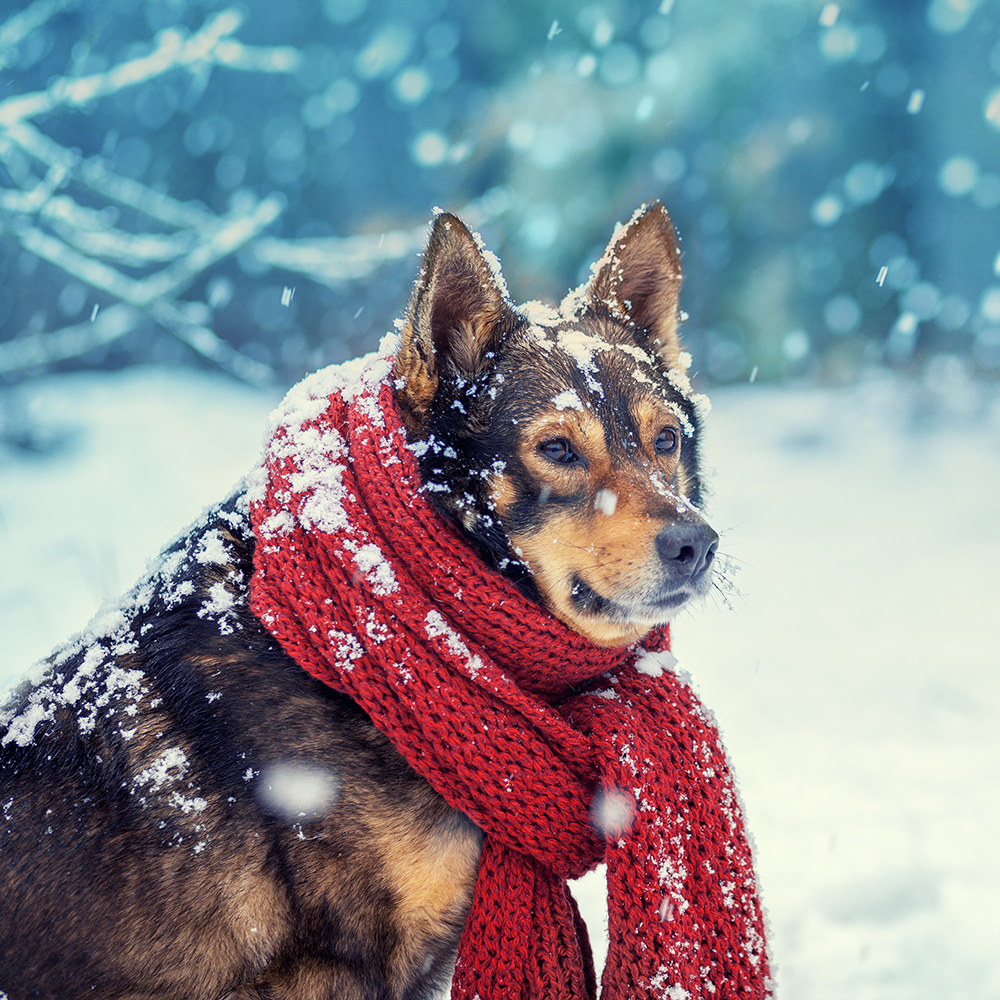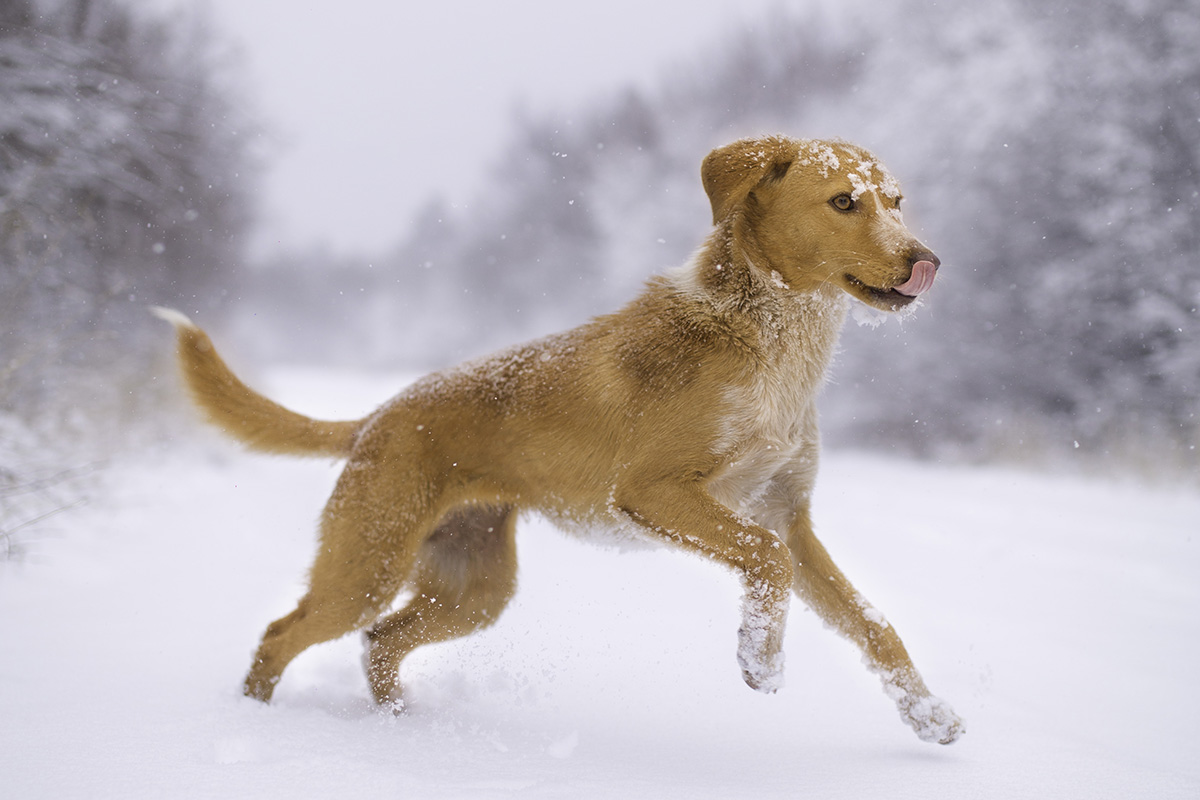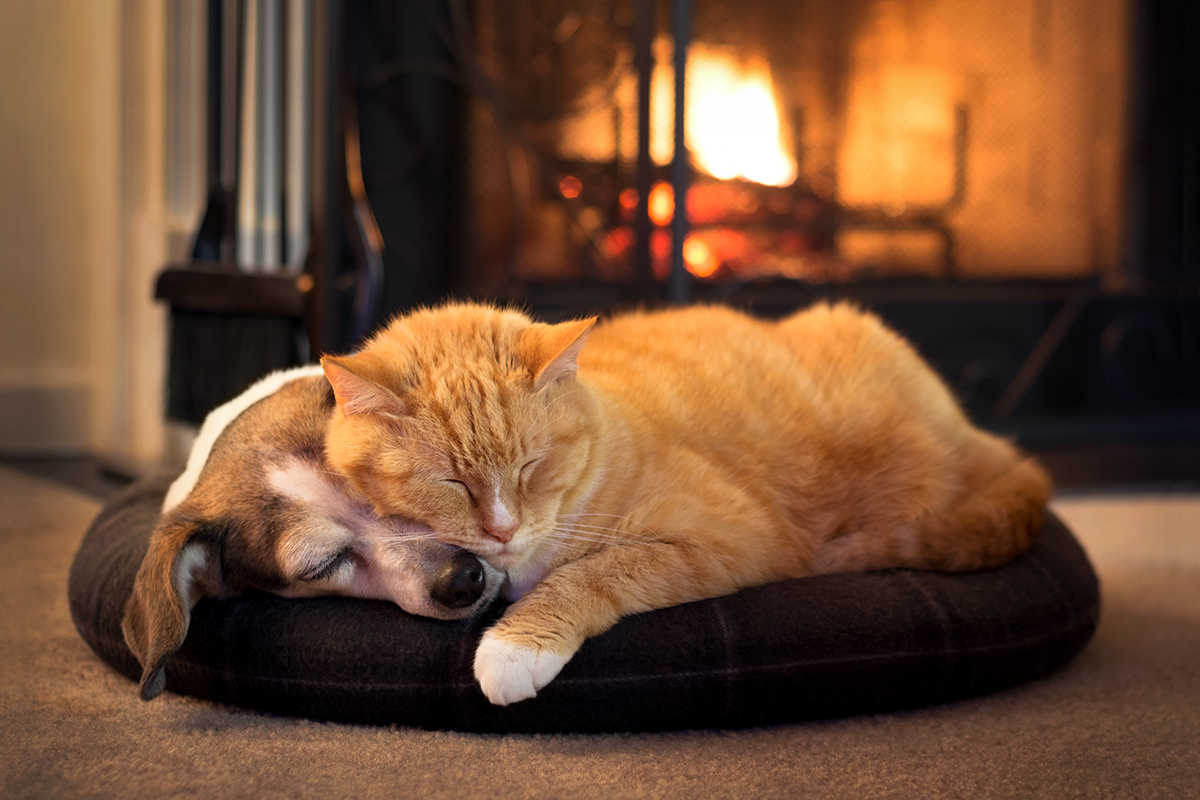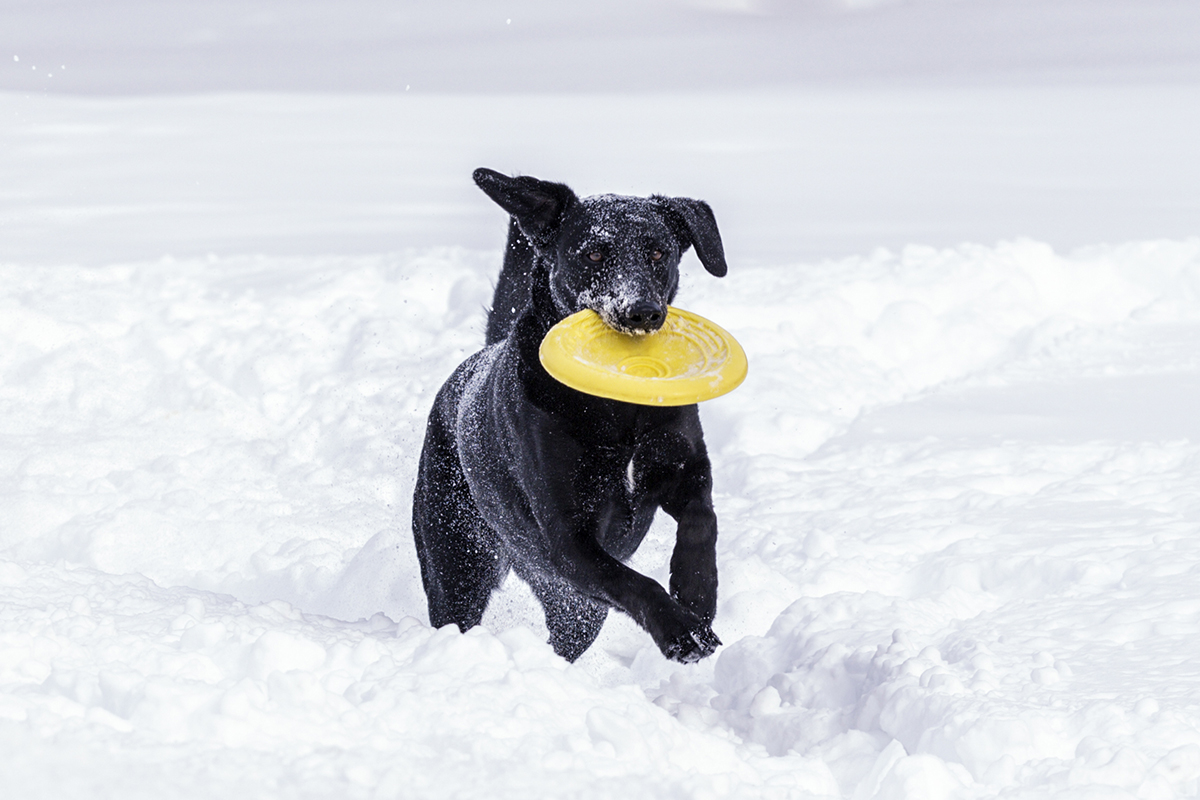When winter’s cold weather descends and temperatures begin to plummet, there are some special precautions to keep in mind when it comes to keeping your pet safe and warm. It is important to remember that pets are members of the family and should always be treated as such. When it comes to extreme conditions – be it cold, rain, snow or storms – it’s always best to be prepared.
An animal of any age can suffer the ill effects to exposure to cold. Hypothermia, frostbite can be a legitimate concern if your pet is left outdoors in cold weather for an extended period of time. A dog or cat whose body temperature has dropped significantly may shiver, will not be completely aware and alert, and will have a slow heart and respiratory rate. Frostbite, although uncommon, may occur on the tips of the ears or tail of any dog or cat left outside in the frigid temperatures.

Here are a few important things to remember that will keep your beloved pet safe and warm this season.
Know your pet’s limits when it comes to outside exposure. Some breeds do very well in the cold temperatures but still need to be kept inside when not on walks or outdoor breaks. Other breeds – Chihuahuas, Poodles and Terriers, for example, should not be left out in the cold for long periods of time. One simple rule of thumb to follow is if it’s too cold for you, it’s most likely too cold for your pet as well.

Rock salt and Antifreeze are toxic and harmful to pets. Use pet friendly ice melting products and/or booties. If pets are exposed to rock salt, be sure to wipe off their feet, tummies and any exposed areas.
Antifreeze is fatal to humans and animals alike. If you have a basement or an attached garage that you allow your dog to explore, be careful to store antifreeze, batteries, deicers, cleaning products, and other chemicals securely out of reach. Even a tiny amount can make your dog deathly ill. Call your veterinarian immediately if you think your dog has ingested anything that might be toxic.

Fireplaces pose an additional indoor danger to animals – Screens are a must to avoid flying sparks and flames. Although it could be tempting for them to curl up in front of the fire on a cold night, pets need to be kept a safe distance from fireplaces and portable heaters to avoid overheating.
Gradually increase your pet’s exercise as the weather improves to avoid injury. The winter months in some areas can mean a lot of time spent indoors and not enough time playing outside or going on walks. As temperatures thaw and spring approaches, it’s best to slowly, but steadily increase your pet’s exercise levels so they will be at their best when it’s time to enjoy the warm weather.



